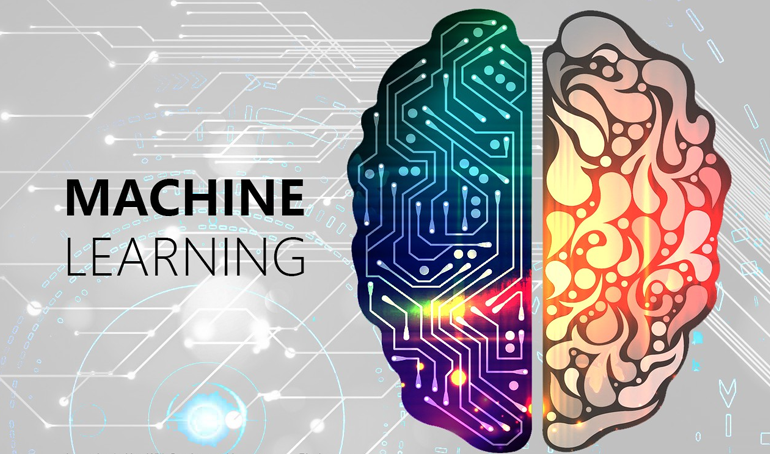Changing technology affects everything from what we eat to how we pay for our meals. Have you ever considered how it is changing the insurance sector? There are lots of advancements in technology, including AI, crypto and smart tech that it might not have even occurred to you to consider affecting insurance. Take a look at our picks for the top tech advancements that are changing insurance.
For insurers, such data can provide valuable insights. While it improves risk assessment and transfer, it creates the potential to predict and prevent risks, as well as offer wider insurance coverage.
Prevention services are not new in the insurance industry; for years, insurers have provided individual consumers with loss prevention advice and risk engineering teams advise businesses in commercial lines. Ways to prevent risk, however, are changing.
Internet of Things

The Internet of Things (or IoT) is more commonly recognised as SMART tech. That’s your Alexa personal assistant, your Ring doorbell, your smartphone-controlled TV, thermostat, blinds, etc.
The Internet of Things in Insurance ultimately lumps any physical items that are controlled and operated by an internet connection together. These items can be very interesting to insurance companies.
For example, wearables like smartwatches collect data that can be used in your health insurance and smart car technology can affect your car insurance. It’s not too much of a stretch, given that black boxes exist, to think of smart tech in cars gaining data on how you drive, what risks you pose with the way you drive and for your insurance to adjust accordingly.
While the idea of IoT has been in existence for a long time, a collection of recent advances in a number of different technologies has made it practical.
- Access to low-cost, low-power sensor technology. Affordable and reliable sensors are making IoT technology possible for more manufacturers.
- Connectivity. A host of network protocols for the internet has made it easy to connect sensors to the cloud and to other “things” for efficient data transfer.
- Cloud computing platforms. The increase in the availability of cloud platforms enables both businesses and consumers to access the infrastructure they need to scale up without actually having to manage it all.
- Machine learning and analytics. With advances in machine learning and analytics, along with access to varied and vast amounts of data stored in the cloud, businesses can gather insights faster and more easily. The emergence of these allied technologies continues to push the boundaries of IoT and the data produced by IoT also feeds these technologies.
- Conversational artificial intelligence (AI). Advances in neural networks have brought natural-language processing (NLP) to IoT devices (such as digital personal assistants Alexa, Cortana, and Siri) and made them appealing, affordable, and viable for home use.
Artificial Intelligence

Artificial intelligence isn’t the sci-fi existential crisis that you’re imagining just yet. At the moment it’s main and best use is to spot and replicate patterns. Its uses are seen everywhere nowadays, and even in the insurance industry. One way AI is improving finance is with personalized insurance policies.
Personalized insurance policies are policies that take in as many aspects of your life as possible and only have you paying for things you will actually use.
Information is gathered about your home and lifestyle and then applied to your insurance policy.
For example, your health insurance might take in data from wearables, family history, lifestyle choices, etc. and create an insurance policy based on what the AI thinks are risk factors in your health.
Not only does the constant improvement of technology and software improve insurance policies and claims themselves, but these updates can also automate it.
Another example is home insurance. Rather than paying to cover for tsunamis when you live in the desert, or forest fires in the city, AI can detect patterns in your location and your lifestyle and offer you an insurance policy that covers only what is likely.
The whole concept takes the human element out of insurance, allowing for less mistakes so that you’re not overpaying or paying out for something that doesn’t require it.
Machine learning

Data has always played a central role in the insurance industry, and today, insurance carriers have access to more of it than ever before. We have created more data in the past two years than the human race has ever created. Insurers—like organisations in most industries—are overwhelmed by the explosion in data from a host of sources, including telematics, online and social media activity, voice analytics, connected sensors and wearable devices.
Machine learning is then key to process the data and enable machine-driven decisions. Reinforcement learning and knowledge graphs are only two principles that help machines become artificially intelligent.
They need machines to process this information and unearth analytical insights. But most insurers are struggling to maximise the benefits of machine learning.
This situation is seeing a gradual but steady change, driven by an environment characterised by increased competition, elastic marketplaces, complex claims and fraud behaviour, higher customer expectations and tighter regulation.
Insurers are being forced to explore ways to use predictive modelling and machine learning to maintain their competitive edge, boost business operations and enhance customer satisfaction.
Blockchain

Blockchain technology will bring about significant efficiency gains, cost savings, transparency, faster payouts, and fraud mitigation while allowing for data to be shared in real-time between various parties in a trusted and traceable manner. Blockchains can also enable new insurance practices to build better products and markets.
Insurance companies operate in a highly competitive environment in which both retail and corporate customers expect the best value for money and a superior online experience.
Blockchain technology represents an occasion for positive change and growth in the insurance industry.
With Ethereum’s smart contracts and decentralized applications, insurance can be conducted over blockchain accounts, introducing more automation and tamper-proof audit trails. Notably, the low cost of smart contracts and their transactions means that many products can be rendered more competitive for penetration of underinsured markets in the developing world.
Smart Contracts
Smart contracts help blockchain technology work. According to PwC, a smart contract is a digitally signed, computable agreement between two or more parties. A virtual third party, a software agent, can execute and enforce at least some of the terms of such agreements (see How Blockchain and Smart Contracts Transforms Insurance).
The smart contract allows the information to be shared and executed in a secure manner.
For example, consider this as an If/Then program: if an insured car is in an accident, then an insurance claim is paid. The use of a smart contract in blockchain allows this type of payment contract to be completed without human interaction, as the information is secure and automated.
With the automation of the contract, we can begin to see how this powerful technology can help large organizations.
Cryptocurrency

Cryptocurrency has turned finance on its head. A lot of aspects of finance have been thrown up into the air with the introduction of this digital currency, and the more mainstream it gets the more upended the industry becomes.
It’s taken a long time for cryptocurrency to get any bearing on the market, and some would still say it hasn’t, but hopefully the benefits of digital currency can transfer into real world cash. Benefits like the extra security and faster transfer times.
However, there are also a lot of problems with cryptocurrency.
The final nature of crypto, in that a transfer can’t be reversed, combined with the decentralized nature allowing for few or no regulations means there are a lot of scams out there.
Considering you could be talking about numbers in the billions, a new type of insurance is hitting the market: crypto insurance. It does exactly what you think it does: it covers your crypto. It protects your crypto assets so that you’re reimbursed if they are stolen in certain situations.
Mobile apps

Mobile apps have done a lot for finance in general. Users can harness a great amount of control that wasn’t previously afforded to them. They can compare policies, get pickier with what’s included in their policy, play with when they have to pay, better manage their money, etc.
Of course, all of this was also available as an option beyond mobile apps, but they are small moves that aren’t quite worth the time sitting by the phone while on hold music plays.
There is also the option to go onto the website directly, but it’s typically a headache doing it via a website unless you pull out the laptop: again, not worth the effort. The ease and convenience of mobile apps isn’t to be undersold.
It has allowed a lot of people better control of their finances, their insurance, and other aspects of their life without it feeling like a task, which can be the difference between doing something and not. Plus, a lot of these mobile apps have chatbots.
Websites and apps with chatbots are rising above the rest due to the ease in which customers can get answers. Again, sometimes a question simply doesn’t merit an hour on hold to reach the customer service team.
Chat bots are making insurance policies a lot easier to navigate. You can ask for your basic information and get a quote in minutes, and if you’re confused about something, get an answer instantly.
………………………..









